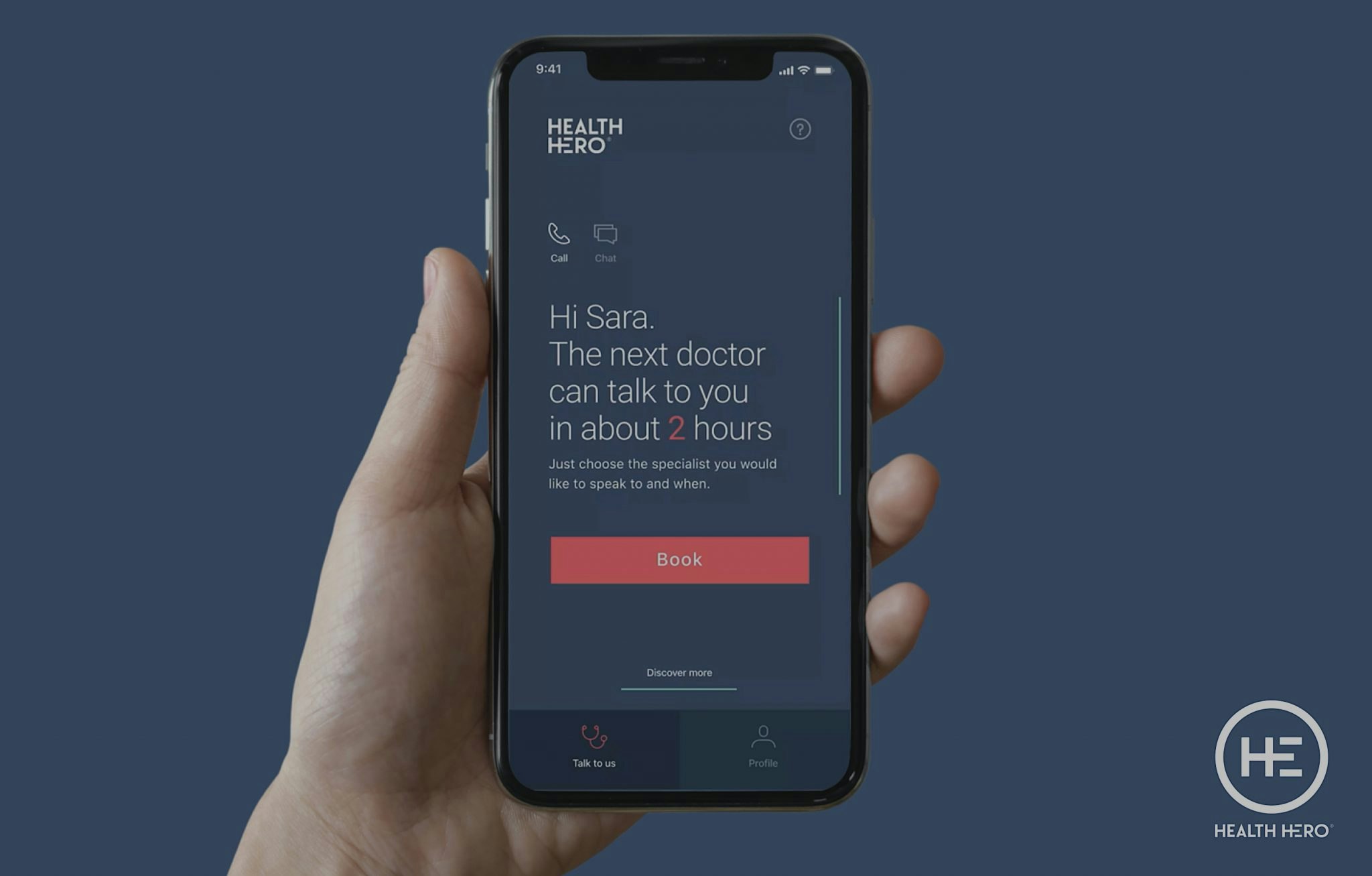Interest and investment in European healthtech is booming. The (often archaic) health industry has adopted new technology like never before — from digital screening and diagnostics apps to patient engagement platforms and hardware.
Healthtech startups have attracted new users in droves, and the sector saw a $750m investment increase from 2019 to 2020, making it a record year for the sector.
But what will 2021 bring? We spoke with three healthtech investors — Dr Fiona Pathiraja, founder and managing partner of Crista Galli Ventures, Ashley Abrahams, fund manager on the EIS team at Guinness Asset Management, and Pam Garside, angel investor and co-chair of The Cambridge Health Network — about the trends and technologies they are most excited about.
1. Telemedicine
Social distancing has necessitated much greater use of telemedicine, a concept we’re all now familiar with thanks to companies like UK-based Babylon Health and Sweden’s KRY. All three investors see this trend continuing as the technology improves.
Pathiraja sees innovative uses of telemedicine on the near horizon. She says: “One of my companies, Arthronica, uses computer vision to measure the movements of people with rheumatoid arthritis. You can do it over video and it gives you an objective measurement to say the patient is 30% worse than at the previous appointment.”
Abrahams adds that technology is improving to the point that microphones may soon be able to substitute stethoscopes, which would further bolster the growth of telemedicine. He says: “It’s not quite there yet but you can see nascent trends emerging.”
And while not all doctors’ equipment can be replaced with a smartphone, telemedicine has allowed medical professionals to collect new information. White coat syndrome, for example, is a condition where the stress of being in a doctor’s office spikes a patient’s blood pressure, giving the doctor an inaccurate reading. Virtual house calls can improve the quality of certain tests and treatments, and allow doctors an opportunity to identify potential lifestyle factors in illness, including gauging nutrition from a fridge, checking thermostats and monitoring background for tripping hazards.
It’s not quite there yet but you can see nascent trends emerging.
2. Mental health
According to an IFS study, lockdown has negatively impacted mental health in the UK by 8.1%.
Mental health startups — from workplace wellbeing and loneliness to depression diagnosis — have been growing steadily since 2014, and plenty more are still launching. Mental health startups that have raised money over the past year include Spill, the Slack app that monitors mental health, workplace mental health platform Unmind, and Meru Health, an AI-matchmaker for better therapy.
Record investment in the sector — $588m in the first half of 2020 alone — led some, such as Garside, to warn the market might not be able to sustain all the new players, but Pathiraja points out there's now unfortunately a wider potential customer base for mental health startups: “The pandemic is going to drive a crisis in mental health for the people who either don’t have a big community or who are in some way socially isolated.”
She says in the past, the group who has suffered the most from loneliness has traditionally been the elderly, whereas now isolation is causing loneliness in every group, including Gen Z and millennials. New mental health startups are emerging that target younger generations.
One example is Triumf Health, which operates from Finland and Estonia. Triumf offers app-based behavioural and psychological support to children, including those with chronic illnesses, in the form of ‘wellbeing games,’ for which they won the EIT Health Catapult Nasdaq Audience Award in 2019.
3. Deeptech and AI
Even before 2020, AI was seen as a solution to help healthcare systems handle increasing demand with limited supply.
“Now we’ve got to a point where there is real AI and machine learning going on in health,” says Garside, referring to one of her portfolio companies, Kheiron Medical, which uses AI to assess mammograms. It’s a more cost-effective way for a health service to screen for cancer, as it often eliminates the need for a second doctor to analyse the X-ray.
Similarly, Spain-based Methinks cuts down the assessment time for stroke patients by using AI to analyse preliminary CT scans, for which it won first prize for Digital Health at the EIT Health Catapult in 2020.
As the pandemic stretches healthcare professionals to their limit, AI adoption presents a unique opportunity to alleviate some of the strain. European health startups using AI include France-based Cardiologs, which helps healthcare professionals screen patients for heart disorders, and the UK’s Healthily (formerly Your.MD), which uses AI to help users check their symptoms before deciding to see a doctor.
This is the time for deeptech to really come to the fore because there’s a lot of science that is needed in the pandemic.
Beyond freeing up the healthcare system from admin-heavy tasks and improving the accuracy of screenings, deeptech could play an even more important role in tackling coronavirus. Pathiraja says: “This is the time for deeptech to really come to the fore because there’s a lot of science that is needed in the pandemic. We’ve created vaccines in a short period of time but artificial intelligence and machine learning can do a lot around supply chains for vaccines, PPE and drugs.”
4. Personalised and preventative care
Medical care tailored to the individual user is also on the up, something that telehealth affords more than traditional health services. Services are emerging that are specifically tailored to provide accessibility to women, LGBTQIA+ people and Black and brown communities.
Grace Health, for example, is a Sweden-based app that claims it’s ‘the first-ever digital women’s health assistant.’ Users can track their menstruation and monitor their health using AI-based predictions and 24/7 chat support.
Because Covid-19 has halted most doctor’s check-ups, personalisation for preventative care is also increasing. Abrahams has invested in UK-based Thriva which makes personalised nutritional suggestions to patients based on the results of an at-home finger-prick blood test and can detect issues such as iron, B12 or Vitamin D deficiencies.
Babies are also benefiting from advancements in preventative care, as samples can be taken far less intrusively. Spanish startup New Born Solutions, for example, has created a medical device which can non-invasively screen for infant meningitis, and won them first prize for Medtech EIT Health Catapult in 2020.
As tailored healthtech grows, Garside sees genomics as an overlooked area for startups, despite the crucial role it’s playing in tracking Covid-19 mutations. She says: “Personalisation is a significant trend. I’m surprised we haven’t seen more 23andMe-type companies that go direct to the consumer providing genetic profiles.”
5. Occupational health
Most of the globe is being forced to work from home this year, and that might become a permanent change, post-pandemic — it’s estimated that 37% of jobs in Europe can be carried out remotely.
Pathiraja invested in two companies in this space — Vitrue Health and LiveSmart, both UK-based. LiveSmart uses comprehensive health assessments and coaching to build a healthier workplace, while Vitrue Health is developing computer vision to monitor motor function, ensuring workers are safe at their desktops, earning itself a place as a semifinalist in EIT Health Catapult 2020.
“They will measure you ergonomically to see how you are working. And they have the same kind of technology to do at-home physiotherapy,” Pathiraja says.
The pandemic as a catalyst for ideation and creation
Abrahams thinks we’ll see a lot of product development, hiring and investment in healthtech this year.
He says: “In any crisis there is opportunity and we’ve seen a lot of really interesting businesses come up in response to [the pandemic].”
“People are bubbling together as founders. This will be a net positive for idea generation, innovation and acceleration in the healthtech space. The crisis has shown the quality and talent there is in the ecosystem. Everyone is adapting.”
Want to learn more about the future of digital health? EIT Health Catapult is a unique competition and training programme that showcases biotech, medtech and digital health start-ups to leading experts and investors across Europe. Apply to the 2021 edition by March 16th 2021, and learn more by joining our webinar on February 10th, 2021.



